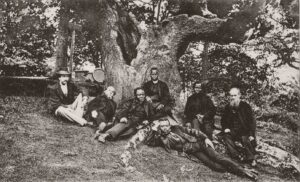Our focus
This project examines over a century of print culture in the Yoruba-speaking region of Nigeria, and its cross-cultural connection with other cultural forms. This study hypothesizes that the contribution of Yoruba print culture to the emergence of new cultural forms – especially in literature and the performing arts sectors – is yet to be fully exploited and explained by researchers because they have concentrated on a small range of research materials. Due to its uniqueness, this culture constitutes a starting point for articulating the idea of modernity in a Nigerian context and for understanding contemporary literary history in Nigeria.
As the precursor to the recruitment of Yoruba people into the European modernity project, Yoruba print culture is important not only because it was founded at the heart of the European colonial project, with its literature becoming a major medium of anti-colonial struggle, but also because it uncovers a robust history of urban engagements with modernity.
The project provides a unique avenue for scholars, journalists, and people from all walks of life, to understand how print culture – with networks of mostly men – changed African societies, particularly those that constitute ethnic groups. This project is working with local researchers and archivists. Parts of these materials are precarious and endangered, and we have digitised some of them for the University of Ibadan libraries, in Ibadan, Nigeria. Therefore, the additional uniqueness of this project is that its result will help to preserve knowledge about some aspects of modern Yoruba history that are currently in danger of being lost forever.
This study aims to discover not just the spectacular events that marked Yoruba print culture, but of utmost importance is the study of how everyday experience by ordinary people is mediated through the print culture and the cultural forms it helped to propagate. Therefore, this project’s result will leave a legacy that similar studies on print cultures in Africa can utilise.

19th Century postcard of bishop Samuel Ajayi (center) and others with a group of missionaries ( including Samuel Johnson under the Wilberforce Oak, in 1873